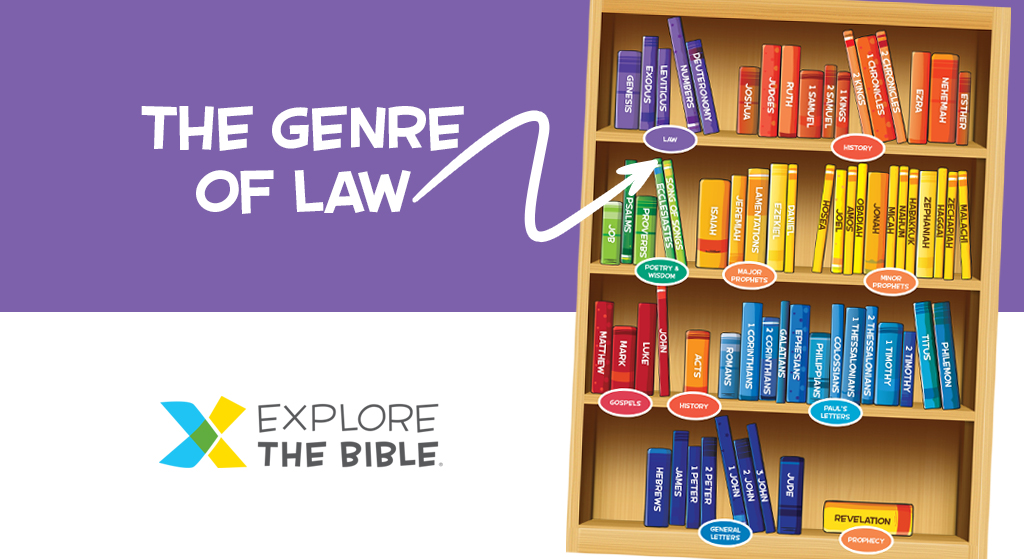Five biblical books are considered books of Law. When you hear the word law you likely think about the laws that reside on the books in your local community, state, or country. The five books grouped as books of Law are exactly that, rules that God passed down to guide His people as they lived their lives. The Books of Genesis, Exodus, Leviticus, Numbers, and Deuteronomy are all centered around God’s creation and the laws He passed down, from the very beginning, to guide faithful living.
God first gave rules, or laws, to Adam in the garden. God had one single rule—Adam could eat from any tree but the one in the center of the garden and he would enjoy constant fellowship with God. Once this law was broken, further laws became necessary. Exodus and Deuteronomy share the story of God commissioning Moses and writing ten commandments down on stone for the people to always have before them. These commandments were given to the people, not as a legal expectation, but to help identify sin in their lives and provide understanding of how people can have honoring relationships with God and others. Leviticus took the commandments on stone and expanded on them to include laws for worship and repentance.
The books of Law exist to help kids see that God has expectations of His followers, but because of people’s propensity to sin, we need, and have, a Savior. In these books, kids will hear stories of God’s people and their struggles with sin. Identifying with Israel and the consequences of their sin, kids will think about sin in their lives and how repentance is needed. The books of Law are full of rich stories foundational to any understanding of the rest of God’s Word. Because of Israel’s failure to understand and follow the laws given by God, the nation ended up exiled in a foreign land—but that is a story for the History genre later.
